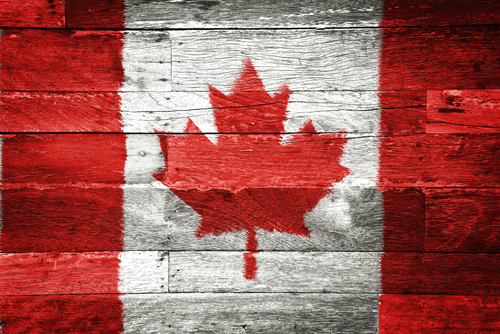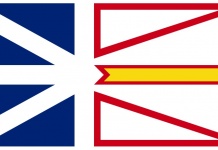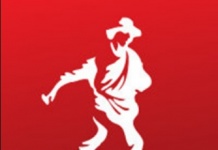 The dire economic situation for British authors has been chronicled in appalling detail by the Authors’ Licensing & Collecting Society (ALCS) and the UK Society of Authors. And, for better or (very definitely) for worse, it turns out that the Brits are by no means alone. The Writers’ Union of Canada (TWUC) has shared figures from its latest income survey of Canadian writers. Devaluing Creators, Endangering Creativity, demonstrating that “writers in Canada are making 27% less from their writing than they were making in 1998 (when last surveyed to this extent). What’s more, a full 45% of those surveyed indicated they are working harder in order to earn that lower amount.”
The dire economic situation for British authors has been chronicled in appalling detail by the Authors’ Licensing & Collecting Society (ALCS) and the UK Society of Authors. And, for better or (very definitely) for worse, it turns out that the Brits are by no means alone. The Writers’ Union of Canada (TWUC) has shared figures from its latest income survey of Canadian writers. Devaluing Creators, Endangering Creativity, demonstrating that “writers in Canada are making 27% less from their writing than they were making in 1998 (when last surveyed to this extent). What’s more, a full 45% of those surveyed indicated they are working harder in order to earn that lower amount.”
The findings echo those in the UK, in their emphasis on the near-poverty-line income levels sustained by Canadian authors. “These results represent a cultural emergency for Canada,” declares the announcement, basing its conclusions on a survey of 947 authors, 68% of them female. “For 81% of respondents, income from writing would not allow them to live above the poverty line, and the average writer’s income ($12,879) is a full $36,000 below the national average.” And as the TWUC points out, “these results are in line with a worldwide trend for creative incomes, especially for writers.”
The survey adds, “changes to contracts and publishing practices (declines in royalty percentages and advances on sales), industry consolidation, as well as worldwide pressure on professional creators to work in a disastrously weakened copyright environment are all likely contributors.” According to the figures, “royalties from traditional publishers (46%) continue to be the main source of writing revenue for writers while income from corporate and government writing continues to be an important source of revenue. Interestingly, revenue from self-published titles is the third largest source of revenue from writing (8%).”
Meanwhile, for the big publishers, life has seldom looked brighter. Clearly something is very seriously out of whack with traditional publishing arrangements.


































To be able to make sense of this we would need to know — for both dates — the number of authors in Canada, the number of books produced by each author, the number of people who bought any of these books, and the average number of books they bought. Without that information, any of several explanations for a 27% drop in value is possible. Assuming a static real price per book, it could be that:
– The number of books produced in Canada has gone up by 27%, while the demand for books has remained the same.
– The number of books produced in Canada has gone up by more than 27%, while demand has also increased, but not as much.
– Book production has increased by less than 27% but demand has gone down by more.
– Book production has not increased, and demand has dropped 27%.
The last scenario is genuinely scary, but the first two seem to me to represent business as usual. Has anyone attempted to estimate the number of books available in Canada in 1998 vs 2015? I know the number of books available to ME went up by a factor of 50 times or so during that period.
Jon Jermey is right. These figures need to be look at in perspective, particularly when comparing figures from 1998 to today.
In 1998, I was editing and contributing to books published by major publishers. I wrote and they did all the marketing and distribution. In 1999, I began to publish through print-on-demand with my own publishing firm. That’s a major change, one that was accentuated when ebooks became more common a few years ago.
It’s easy to suspect that the greater ease of publishing today in comparison to 1998 means more authors publishing more books. That almost certainly means more competition for an income from book sales that may not be growing as fast as the pool of published authors and books.
Factors like those need to be understood before we debate what changes need to be made in publishing.
That’s why I confine most of my criticism of the publishing industry to the undeniable facts. It is why I blast Amazon for its grossly inflated ebook download fees and only paying 35% for ebooks outside the narrow $2.99-9.99 price range. No other retailer I know of charges download fees and most pay in the 65-70% range either at all retail prices (Apple) or over a wider price range that Amazon (B&N).
Forcing market-dominate Amazon pay the industry standard rates would go a long way toward improving the income of writers here and abroad.
I am a Canadian writer, doing very well financially. In fact, this year I am doing better than I ever have done. Some people will claim that I am lucky. Not even close! I have developed 75 to 100 of my own unique marketing techniques that have generated sales of my books (mainly self-published) to the tune of 875,000 copies worldwide.
Here are a few of my favorite inspirational quotations that have helped me pull off many accomplishments that 99 percent of authors will never pull off:
“The law of floatation was not discovered by contemplating the sinking of things.”
— Thomas Troward
“Empty pockets never held anyone back. Only empty heads and empty hearts can do that.”
— Norman Vincent Peale
“If you see in any given situation only what everybody else can see, you can be said to be so much a representative of your culture that you are a victim of it.”
— S. I. Hayakawa
“The fishing is best where the fewest go and the collective insecurity of the world makes it easy for people to hit home runs while everyone is aiming for base hits.”
— Timothy Ferriss
“Read, every day, something no one else is reading. Think, every day, something no one else is thinking. Do, every day, something no one else would be silly enough to do. It is bad for the mind to continually be part of unanimity.”
— Christopher Morley
“The good ideas are all hammered out in agony by individuals, not spewed out by groups.”
— Charles Bower
“If your daily life seems poor, do not blame it; blame yourself, tell yourself that you are not poet enough to call forth its riches.”
— Rainer Maria Rilke
“The amount of money you make will always be in direct proportion to the demand for what you do, your ability to do it, and the difficulty of replacing you.”
— Earl Nightingale
In short, taking full responsibility for your life is about being your own hero, becoming truly prosperous and free, without the sanction of society, government, friends, family, or any other questionable forces that have no idea what your life is all about.
Ernie J. Zelinski
The Prosperity Guy
“Helping Adventurous Souls Live Prosperous and Free”
Author of the Bestseller “How to Retire Happy, Wild, and Free”
(Over 250,000 copies sold and published in 9 languages)
and the International Bestseller “The Joy of Not Working”
(Over 280,000 copies sold and published in 17 languages)